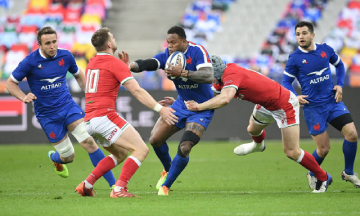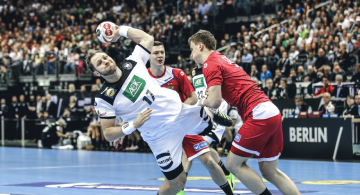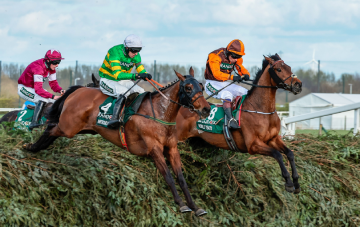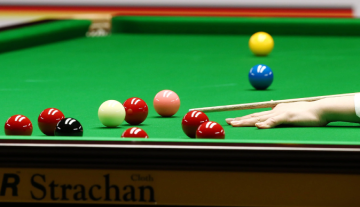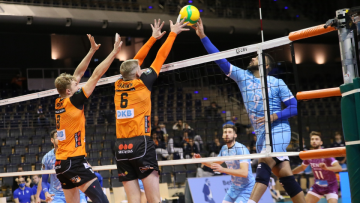GOSUBETTING’s Bitcoin betting guide to the exciting world of rugby sevens will get you to understand what makes this game such a great spectacle and Bitcoin betting opportunity. Here, you’ll find the various bet types available, helpful insights, and learn smart approaches to your betting.
We also focus on the benefits of using Bitcoin for betting, highlighting its advantages such as privacy, reliability, and availability worldwide. GOSUBETTING will also give tips on selecting the best Bitcoin sports betting sites that we recommend so that your betting journey is secure and rewarding. Even if you are new to the world of sports or Bitcoin betting, this guide will become a detailed resource for Rugby World Cup Sevens betting using Crypto.
Best Rugby World Cup Sevens Bitcoin Bookmakers & Sportsbooks
Rugby World Cup Sevens Overview
The Rugby World Cup Sevens is one of the biggest events of international sevens rugby played every four years by the national sevens teams. The IRB oversees the worldwide rugby tournament known as the Sevens which was started in 1993 in Scotland, home of the game.
New Zealand was the reigning champions but the title of World Champions was snatched up by Fiji in 2022. Significantly, Fijian and the New Zealander teams have won their titles twice while Britain and Welsh one piece of awards. Australia, as well as South Africa, have always been among the favorites, making it to the final rounds in other editions yet losing out on the title.
The tournament’s victors are honored with the Melrose Cup, named in tribute to the Scottish town of Melrose, the cradle of rugby sevens. With rugby sevens’ incorporation into the Olympic Games, there was speculation about the future of the World Cup Sevens. However, the IRB decided to keep the event, integrating it into the Olympic cycle.
This means that from 2016, elite-level rugby sevens competitions will occur biennially. The first World Cup post-Olympic integration took place in 2018, bridging a unique five-year interval since the 2013 tournament. This event aimed to expand the number of participating teams beyond the scope of the Olympic tournament.

Rugby World Cup Sevens: A Historical Journey
The start of the Rugby World Cup Sevens traces back to a proposition by the Scottish Rugby Union to the International Rugby Football Board. The starting event was hosted at Murrayfield in Edinburgh in April 1993 and has been a quadrennial occurrence ever since.
Significant in the evolution of Sevens rugby was the 1997 tournament held in Hong Kong, a pivotal location in the sport’s international growth. That year saw Fiji triumph over South Africa in the finals. In 2001, the tournament shifted to Mar del Plata, Argentina. It came back to Hong Kong in 2005.
Including the Rugby Worl;d Cup Sevens in the Olympics
In 2005, the IRB argued for including sevens in the Olympics. In the beginning, it was not successful but was attributed partly to the perception that the women’s game needed to be strengthened. This is why the International Rugby Board (IRB) introduced the maiden Rugby World Cup for women.
The 2009 Rugby World Cup Sevens in Dubai marked a milestone with the inclusion of a women’s tournament, drawing a cumulative attendance of 78,000. With Rugby Sevens gaining momentum, it was recommended for inclusion in the Olympics over other sports in August 2009. Subsequently, in 2009, the International Olympic Committee voted to introduce Sevens as a medal sport at the 2016 Rio de Janeiro Games.
For the 2013 edition, Moscow was selected as the host by the IRB Council from eight interested nations, aiming to spur rugby growth in Russia.
Initially, the IRB contemplated discontinuing the World Cup Sevens post-2013, favoring the Olympics as the foremost event in the four-year cycle. Nevertheless, through negotiations, it was resolved in 2013 that World Cup sevens would survive with the following one scheduled for the coming year onwards after every four years. After this statement was made the United States as well as Wales were few of the many nations that showed interest in the hosting of the 2018 competition.
Men’s Rugby World Cup Sevens: A Retrospective of Champions
Rugby World Cup Sevens has witnessed many amazing games and iconic characters through the years. Here’s a look at the tournament’s history, highlighting the winners, scores, runners-up, and semi-finalists:
1993, Edinburgh, Scotland:
- Winner: England (21–17 over Australia)
- Semi-finalists: Fiji, Ireland
1997, Hong Kong:
- Winner: Fiji (24–21 over South Africa)
- Semi-finalists: New Zealand, Samoa
2001, Mar del Plata, Argentina:
- Winner: New Zealand (31–12 over Australia)
- Semi-finalists: Argentina, Fiji
- Note: Jonah Lomu, stepping in for injured captain Eric Rush, scored three tries in the final.
2005, Hong Kong:
- Winner: Fiji (27–19 over New Zealand)
- Semi-finalists: Australia, England
- Note: Waisale Serevi led Fiji to victory, preventing New Zealand from securing a second consecutive Melrose Cup and stopping England from holding both Rugby World Cup titles.
2009, United Arab Emirates:
- Winner: Wales (19–12 over Argentina)
- Semi-finalists: Kenya, Samoa
- Note: Wales, Samoa, Argentina, and Kenya upset the traditional powerhouses in the quarter-finals, with Wales’ Taliesin Selley being named player of the tournament.
2013, Moscow, Russia:
- Winner: New Zealand (33–0 over England)
- Semi-finalists: Fiji, Kenya
Besides the tournament highlights we mentioned above, Fijian winger Marika Vunibaka comes with 23 tries under his belt earning him during three tournaments starting from the year 1997 till now making him the best all-time try scorer in the Rugby World Cup Sevens.
Rugby World Cup Sevens: Results by Nation
Men’s Rugby World Cup Sevens
1993, Edinburgh, Scotland
- Australia: Runner-up
- England: Winner
- Fiji: Semi-finalist
- Ireland: Semi-finalist
1997, Hong Kong
- Fiji: Winner
- New Zealand: Semi-finalist
- Samoa: Semi-finalist
- South Africa: Runner-up
2001, Mar del Plata, Argentina
- Argentina: Semi-finalist
- Australia: Runner-up
- Fiji: Semi-finalist
- New Zealand: Winner
2005, Hong Kong
- Australia: Semi-finalist
- England: Semi-finalist
- Fiji: Winner
- New Zealand: Runner-up
2009, United Arab Emirates
- Argentina: Runner-up
- Kenya: Semi-finalist
- Samoa: Semi-finalist
- Wales: Winner
2013, Moscow, Russia
- England: Runner-up
- Fiji: Semi-finalist
- Kenya: Semi-finalist
- New Zealand: Winner
Notable Highlights:
- Jonah Lomu’s impactful performance in the 2001 tournament.
- Waisale Serevi led Fiji to victory in 2005.
- Wales’ surprising win in 2009 with Taliesin Selley as player of the tournament.
- Marika Vunibaka’s record as top try-scorer with 23 tries.
Women’s Rugby World Cup Sevens
2009, United Arab Emirates
- Australia: Winner
- New Zealand: Runner-up
- South Africa: Semi-finalist
- United States: Semi-finalist
2013, Moscow, Russia
- Canada: Runner-up
- New Zealand: Winner
- Spain: Semi-finalist
- United States: Semi-finalist
Results by Nation (Women’s)
- Australia: 1st (2009), 5th (2013)
- Canada: 6th (2009), 2nd (2013)
- New Zealand: 2nd (2009), 1st (2013)
- United States: 3rd (2009, 2013)
- Others: Brazil, China, England, Fiji, France, Ireland, Italy, Japan, The Netherlands, Russia, South Africa, Spain, Thailand, Tunisia, Uganda
These outcomes show us how the Rugby World Cup Sevens is all the more exciting as well as competitive, seeing that various old rugby giants and newbies participate in both the men’s and the female tournaments.
Rugby Sevens Rules and Terminology
Basics of Rugby Sevens:
- Players and Duration: Played with teams of seven, each side has 14 minutes (two halves of 7 minutes) to score.
- Objective: Advance the ball into the opponent’s area (pitch) and touch it to the ground, scoring a try worth 5 points.
- Ball Movement: Players can only pass the ball backwards or sideways. Forward movement is through kicking.
- Continual Play: The game continues without breaks for tackles, with lineouts, mauls, rucks, and scrums used to keep possession.
- Scoring: After a try, teams can kick for an additional 2 points (conversion). Penalty kicks, worth 3 points, are rare in sevens.
- Overtime: In knockout rounds, if teams tie, a 5-minute overtime is played where the first to score wins.
Common Rugby Sevens Terms:
- Try: Scoring by touching the ball down in the opponent’s in-goal area (tryzone).
- Tryzone: The area where tries are scored.
- Conversion: A post-try kick for two extra points, executed as a drop-kick.
- Penalty: A kick awarded for an opponent’s foul, potentially scoring three points.
- Touchline: Boundary lines of the pitch; if the ball goes out, it’s out of bounds.
- Tryline: The goal line marking the start of the tryzone.
- Tackle: Bringing the ball carrier to the ground; play continues after tackles.
- Ruck: When the ball is on the ground, with players contesting it while on their feet.
- Maul: When the ball carrier and teammates are bound and held by opponents.
- Lineout: Restarts play after the ball goes out of bounds, involving a throw-in and players lifting to catch the ball.
- Scrum: Restarts play after a minor infringement, with a contest for the ball between bound players of both teams.
- Sin Bin: Temporary removal of a player for infringements, lasting 2 minutes in sevens.
- Pitch: The rugby field where the game is played.
These rules and terms give you a good understanding of the Rugby Sevens, a fast-paced and high-scoring version of traditional rugby, known for its continual play and strategy.
Rugby Sevens Tournament Format
Basic Structure:
- Teams and Field Size: Sevens is a version of rugby union originating in Scotland, featuring seven players per side on a standard rugby field.
- Game Duration: Matches are notably shorter, typically 7 or 10 minutes per half, leading to a fast-paced, open style of play.
- Scoring and Pace: The game is quicker and often results in higher scores than 15-a-side rugby, partly due to simpler rules and more space for individual skill.
Tournament Format
- Traditional Length: Sevens tournaments usually span two days, except the Hong Kong Sevens, which is a three-day event.
- Team Entry: Normally, 16 teams participate in a standard event. The Hong Kong Sevens has included up to 28 teams in recent years.
- Series and Qualifiers: World Rugby does satellite tournaments as qualifiers for the Sevens World Series. These also determine entrants for various competitions within the main events.
Pool Play and Scoring:
- Pool Division: Teams are divided into pools of four, playing round-robin matches.
- Points Allocation: Wins earn 3 points, draws 2, losses 1, and no-shows 0.
- Tiebreakers: Head-to-head results, point-and-try differences, total points scored, and coin tosses are used to break ties after pool play.
Trophies and Competitions:
- Cup: The main trophy, awarded to the tournament champion.
- Plate, Bowl, and Shield: Other trophies awarded through knockout tournaments.
- Competition Progression: Top teams from each pool enter the Cup competition; quarterfinal losers compete for the Plate; third and fourth-place teams contest the Bowl; Shield is for losing quarter-finalists of the Bowl.
Hong Kong Sevens Special Format:
- Historical Format: Initially, six pool winners and two best second-place teams advanced to the Cup.
- 2010 and 2011 Changes: Different systems were used, altering the distribution of teams across Plate, Bowl, and Shield competitions.
- Post-2012 Format: The Hong Kong Sevens split into separate competitions for core teams and invited teams, with the top teams in the Shield competition gaining core status for the following season.
- Current Format: As of 2013, the Hong Kong Sevens follows the regular 16-team tournament format for its four trophies.
Additional Matches:
A third-place match between the losing Cup semi-finalists was added to the 2011–12 series.
This format highlights the unique structure of Rugby Sevens tournaments, with their rapid matches and multiple trophy competitions, contributing to the dynamic and exciting nature of the sport.
Rugby Sevens Points Schedule and Tiebreakers
Season Championship Points Allocation:
- Introduction: In the 2011–12 series, World Rugby introduced a scoring system ensuring all participating teams in a tournament earn points.
- Standardization: From the 2012–13 series, all events feature 16 teams competing for series points, with a special case for the 2013 London Sevens where only 12 teams competed for series points.
Points for Tournament Placements:
- Cup Winner (1st Place): 22 points
- Cup Runner-Up (2nd Place): 19 points
- Cup Third-Place Playoff Winner (3rd Place): 17 points
- Cup Third-Place Playoff Loser (4th Place): 15 points
- Plate Winner (5th Place): 13 points
- Plate Runner-Up (6th Place): 12 points
- Losing Plate Semi-Finalists (Joint 7th Place): 10 points each
- Bowl Winner (9th Place): 8 points
- Bowl Runner-Up (10th Place): 7 points
- Losing Bowl Semi-Finalists (Joint 11th Place): 5 points each
- Shield Winner (13th Place): 3 points
- Shield Runner-Up (14th Place): 2 points
- Losing Shield Semi-Finalists (Joint 15th Place): 1 point each
Tiebreakers for Season Points:
- Points and Tries Difference: If teams are level on series points at the end of the season, the overall difference in points scored and allowed, followed by the total try count during the season, are used as tiebreakers.
- Tied Teams: If this doesn’t resolve the tie, the teams are considered tied in the standings.
This points structure and tiebreaker system make it a fair method for selecting the season champion in Rugby Sevens, which shows both consistency and performance throughout the series.
World Rugby SVNS Series 2023/24 Full Schedule
The 2023/24 Rugby SVNS Series, a prominent event in the Olympic rugby discipline, spans seven months and features 12 men’s and women’s teams competing in various global locations.
Key Highlights of the Series:
- Teams: 12 men’s and women’s teams participate in each series event, mirroring the Olympic format.
- Qualification for Finals: The top eight teams post-Singapore event will vie for glory in a ‘winner takes all final’ in Madrid.
- Relegation Play-Off: The bottom four from the SVNS series and the top four from the World Rugby Challenger Series will compete in Madrid for a spot in the 2023/24 SVNS campaign.
- Significance for Olympics: Rugby sevens is included in the Paris 2024 Olympics, with matches scheduled from 24th to 30th July.
Complete Schedule for 2023/24:
- Dubai, UAE: 2-3 December 2023
- Cape Town, South Africa: 9-10 December 2023
- Perth, Australia: 26-28 January 2024
- Vancouver, Canada: 23-25 February 2024
- Los Angeles, USA: 2-3 March 2024
- Hong Kong SAR, China: 5-7 April 2024
- Singapore, Singapore: 3-5 May 2024
- Madrid, Spain: 31 May – 2 June 2024 (Final & Relegation Play-Off)
This series offers an exciting selection of venues and intense competition, setting the stage for an exciting rugby sevens season leading up to the Paris 2024 Olympics.
Types of Bitcoin Bets for Rugby World Cup Sevens
As Crypto Sportsbooks suggested by GOSUBETTING on this page, you can place a range of different types of bets on the Rugby World Cup Sevens using Bitcoin. Some of the common bets include:
- Match Winner: Betting on which team will win a particular match.
- Tournament Winner: Predicting the overall winner of the Rugby World Cup Sevens.
- Points Spread: Betting on the point margin by which a team wins or loses.
- Total Points (Over/Under): Wagering whether the total points scored in a match will be over or under a specified number.
- Prop Bets: Bets on specific events or outcomes within a match, like the first team to score, number of tries, etc.
- Live Betting: Placing bets on matches in real-time, with odds that fluctuate based on the current state of play.
Reasons to Bet with Bitcoin
- Privacy: Bitcoin transactions offer more anonymity compared to traditional payment methods.
- Smaller Transaction Fees: Bitcoin typically has lower transaction fees, making it cost-effective for both deposits and withdrawals.
- Fast Transactions: Deposits and withdrawals with Bitcoin are often faster than traditional banking methods.
- Wold-wide Availability: Bitcoin takes away the need for currency conversion and is available worldwide, making it convenient for international Bitcoin bettors.
- Potential for Appreciation: The value of Bitcoin can appreciate over time, which could increase the value of your winnings.
Featured Bitcoin World Cup Sevens Betting Site
BC.Game Welcome Bonus
180% up to $20,000 First Deposit Bonus
Betting on the Rugby World Cup Sevens: Steps and Tips
Betting with Bitcoin on the Rugby World Cup Sevens can be both exciting and rewarding. Here’s a step-by-step guide along with some tips to help you start:
1: Understanding the Game
- Learn the Rules: Familiarize yourself with the rules of Rugby Sevens, including scoring, gameplay, and tournament format.
- Follow the Teams and Players: Keep track of team performances, player statistics, and recent form. This knowledge is so important for making informed bets.
2: Choosing a Betting Site
- Choose a Reputable Sportsbook: Look for crypto sports betting sites recommended by Gosubetting that offer Rugby Sevens betting. Prioritize those with strong reputations, user-friendly interfaces, and competitive odds.
- Look At Cryptocurrency Options: If you’re interested in using Bitcoin, select a sportsbook that accepts it. Benefits include faster transactions, increased privacy, and often better bonuses.
3: Creating an Account
- Register and Deposit: Sign up for an account and deposit your money. If using Bitcoin, make sure you have a secure Bitcoin wallet.
4: Placing Your Bets
- Explore Betting Markets: Understand different types of bets – from outright winners to prop bets.
- Start Small: If you’re new, start with smaller, simpler bets to get a feel for the process.
5: Developing a Betting Strategy
- Stay Informed: Regularly check for updates on teams, players, and any changes in the tournament schedule.
- Manage Your Bankroll: Set a budget for betting and stick to it. Avoid chasing losses with impulsive bets.
6: Betting Responsibly
- Know When to Stop: Bet responsibly and be aware of the risks involved. It’s important to see betting as a form of entertainment rather than a source of income.
Additional Tips for Success
- Shop for the Best Odds: Different Bitcoin sportsbooks will offer different odds. Look around for the best value.
- Take Advantage of Bonuses: Many of the sites we recommend offer welcome bonuses or special promotions for Rugby Sevens events. Use these to your advantage.
- Chat with the Community: Join forums or follow betting experts for insights and tips.
Following these steps and tips would be a good way to start you into a fun-filled way of betting with Bitcoin in the Rugby World Cup Sevens. As a rule, in sports betting, knowledge is power, so, the more knowledgeable you are, the better your chances are.
Choosing a Good Bitcoin Sports Betting Site
- Reputation and Trustworthiness: Look for Bitcoin bookies with positive reviews and a strong reputation in the betting community.
- Betting Options and Odds: Choose a site that offers a variety of betting options on the Rugby World Cup Sevens and competitive odds.
- User Experience: A user-friendly interface and easy navigation are essential for a good betting experience.
- Security: Make sure that the site has good security measures to protect your Bitcoin transactions and personal data.
- Customer Support: Good customer service with quick response times is important, especially for new bettors.
- Bonuses and Promotions: Look for sites that offer attractive bonuses, especially for Bitcoin deposits, to maximize your betting value.
By considering these points, you can choose a Bitcoin sports betting site that offers a secure, enjoyable, and potentially profitable betting experience for the Rugby World Cup Sevens.
Conclusion
As we come to the end of our exploration of betting on the Rugby World Cup Sevens with Bitcoin, we hope this guide has provided you with a thorough understanding and valuable insights into this dynamic betting world. From understanding the fast-paced nature of Rugby Sevens to exploring different Bitcoin betting opportunities available at GOSUBETTING recommended Cryptosports books, we’ve covered basic and helpful topics to better your experience.
The benefits of using Bitcoin also offer you a unique edge to your betting strategy. We’ve also offered guidance on selecting a good Bitcoin sports betting site, focusing on aspects like security, betting options, and customer service. Whether you’re a new or experienced Bitcoin this guide will give you the knowledge you need for a successful and enjoyable betting experience during the exciting Rugby World Cup Sevens.
Frequently Asked Questions
This FAQ section is designed to give you a solid foundation for your Rugby World Cup Sevens crypto betting adventures, particularly when using BTC (Bitcoin). As always, bet responsibly and enjoy all the excitement of one of the most exciting sports in the world.
-
What distinguishes Rugby Sevens from traditional rugby?
-
How does the points system work in Rugby Sevens tournaments?
-
Can I bet on both match outcomes and tournament winners?
-
What are the advantages of using Bitcoin for betting on Rugby Sevens?
-
What should I consider when choosing a Bitcoin betting site?
-
Are live betting options available for Rugby Sevens?
-
What strategies can improve my Rugby Sevens betting?
-
How are ties resolved in Rugby Sevens series points?
-
Can I place bets on specific player performances?
-
What makes Rugby Sevens an attractive sport for betting?






















































